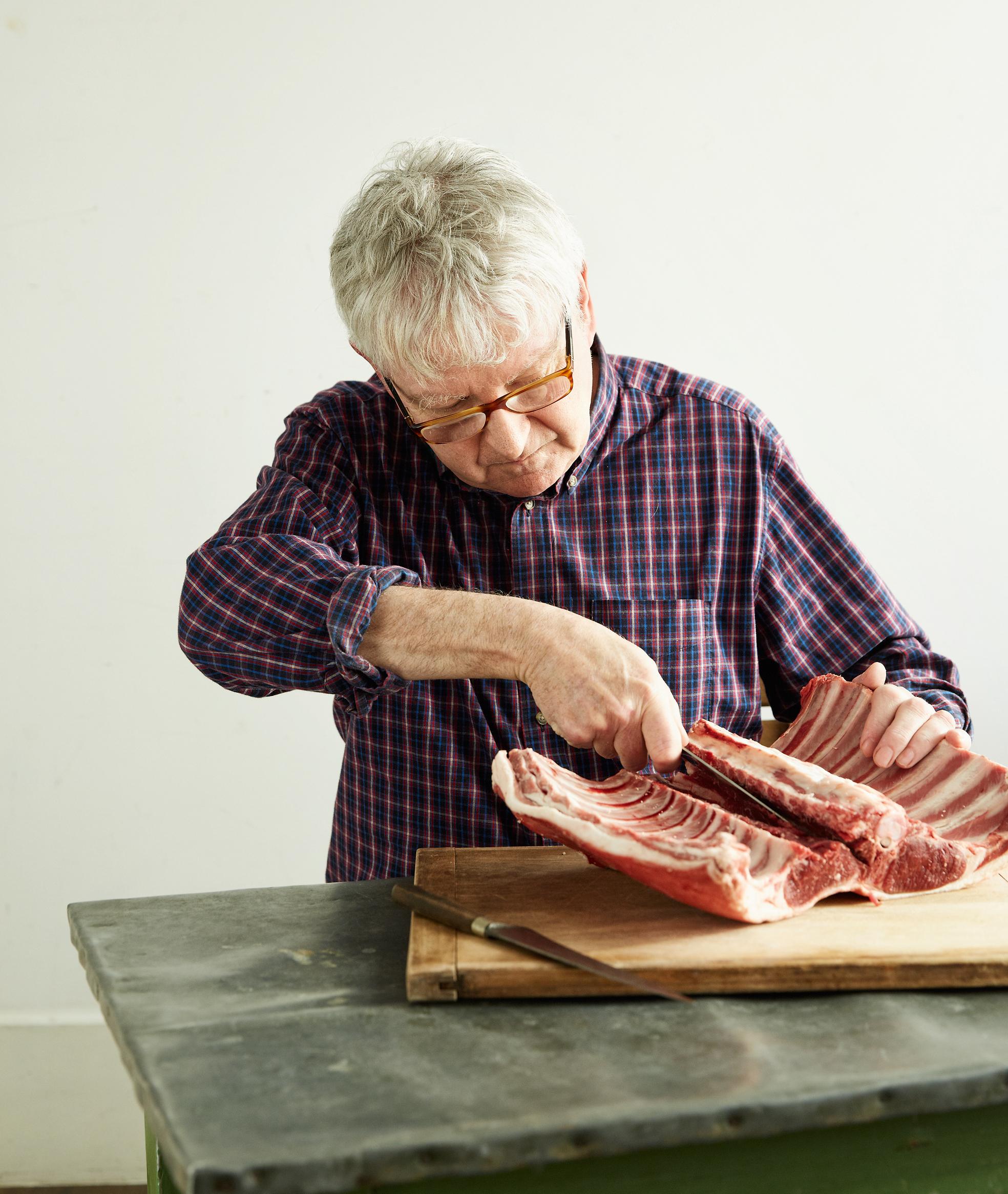Michelin-starred chef Shaun Hill explains why salt is essential
And why he will celebrate when the kale and avocado trend finally fades

Your support helps us to tell the story
From reproductive rights to climate change to Big Tech, The Independent is on the ground when the story is developing. Whether it's investigating the financials of Elon Musk's pro-Trump PAC or producing our latest documentary, 'The A Word', which shines a light on the American women fighting for reproductive rights, we know how important it is to parse out the facts from the messaging.
At such a critical moment in US history, we need reporters on the ground. Your donation allows us to keep sending journalists to speak to both sides of the story.
The Independent is trusted by Americans across the entire political spectrum. And unlike many other quality news outlets, we choose not to lock Americans out of our reporting and analysis with paywalls. We believe quality journalism should be available to everyone, paid for by those who can afford it.
Your support makes all the difference.Salt has long been considered the enemy when it comes to food and nutrition.
The NHS currently advises that many of us in UK eat too much of it and warn of the health risks that come with it such as high blood pressure. The current advice is for adults to eat no more than 6g per day (the recommendation is less for children).
While we need some sodium, there has long been a consensus that adding salt to our food is bad, and there are even a variety of no-salt cookbooks dedicated to having little-to-no salt in our food. The debate has waned back and forth with a 2016 review by scientists at Columbia University in New York finding that 33 per cent of academic reports came to a conclusion that reducing salt makes no difference to long-term health.
Shaun Hill, the former head chef at Michelin-starred eateries such as The Merchant House in Ludlow, has now sought to challenge the no-to-salt school of thought in his new book appropriately entitled Salt is Essential.

Hill says salt’s reputation is “fairly grim just now” but that actually it is “essential to life”.
“That's why salt was part of the wages for Roman soldiers,” he told The Independent. “For me, it is the fact that food should taste of something and that salt has always been part of the cook's armoury in enhancing and accentuating taste.
“Fashion dictates lower salt levels which is fine but no salt will usually equate with no flavour. The bad guy this past century hasn't been the salt you sprinkle on your lunch but the hidden salts that are used in industrial and commercial manufacture to preserve and to add flavour to otherwise dull products.”
In his book, Hill writes that the “villainous quantities of hidden salts are a feature of industrialised food production, not home cooking, and not what we need worry over in our own kitchens or in any recipe here”.
Such recipes in the book include a rack of lamb with persillade and gratin de Jabron, Malfatti and lobster omelette – all of which advise to add salt of course.
“There should be a salt level indicator in processed food where most is used, the same with sugar of course, and beware of tomato sauce or soup,” he says.
Hill continues his no-nonsense approach when discussing healthy food trends such as green food –largely associated with the clean eating movement - and the fact that, in recent years, sugar has overtaken both salt and fat to be considered the ultimate nutrition demon.
“Sugar is, of course, the new villain not salt,” he says. “Happily, I'm content with a little sweetening so it may be my turn to live the healthy life.
“Too much salt is bad. However, too much almost anything is bad and only dim people overdo it. Salt's problems lie with the hidden quantities in processed or junk foods. I'm hoping that dull food like kale and avocado are discovered to give nasty ailments. I will crack open a bottle of alcohol-free Champagne to celebrate.”
Continuing his war of words against the dieticians and health experts, he lambasts the way that in society we have been “made to feel guilty by those who offer diets to make you 'glow' with health, be fascinating, slim and have lots of friends”.
“How often have we read all this before and how often has a touch of moderation proved the right answer?” he affirms.
While he is a rallying supporter of salt, he appreciates it would be “daft” to add it to everything and can’t stand the premise of adding salt to chocolate.
Salt aside, other areas of food and dining which come in for a backlash in the book include brunch, arguably a sure contender for the average Londoner’s favourite type of meal.
“It’s a matter of opinion of course but, personally, I don’t like collision words like ‘Brangelina’ or the suffix ‘-gate’ added to anything involved in a scandal,” he says.
His final piece of advice for any budding chefs who also want to adopt a no-toss-given cooking style: “The cook should be in control and should make dishes the way he or she prefers to eat them. That way at least one person will enjoy the meal.”
Salt Is Essential by Shaun Hill, Published by Kyle Books, is out now.
Join our commenting forum
Join thought-provoking conversations, follow other Independent readers and see their replies
Comments